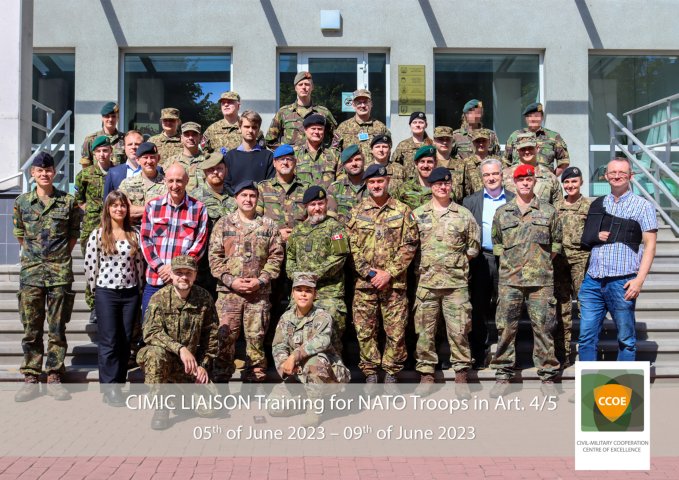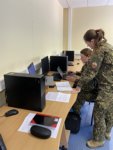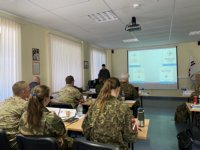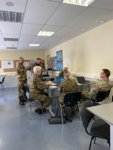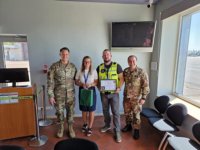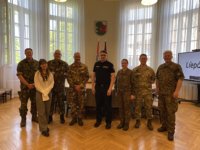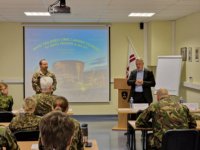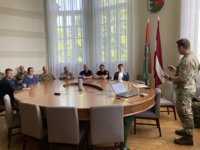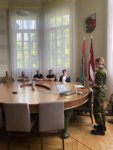A successful conclusion of the of NATO Tailored CIMIC Liaison Course in Liepaja!
Last week marked the successful conclusion of the second iteration of NATO Tailored Civil-Military Cooperation (CIMIC) Liaison Course for NATO Troops under Article 4 and 5. This training took place at the Navy Training Centre in Liepaja, Latvia. Guided by Major Francesco Di Giampietro, Course Director from the CCOE, and in collaboration with Host Nation Course Director Mr. Richard Batarags from the Latvian Armed Forces J9, the course sought to enhance our collective readiness and cooperation.
The context for this training aligns closely with real-world scenarios where NATO CIMIC Forces could be called upon for deployment within NATO territory. The course reflects on the evolving geopolitical realities where collective defence is not just a theoretical concept but an operational imperative.
The course encompassed practical components, like assessing Host Nation infrastructure and conducting liaison with key members of Liepāja's airport, harbor, railway, and municipal leadership.
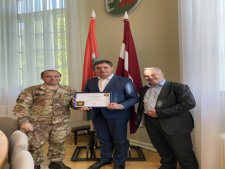 Gunārs Ansiņš, Mayor, Chairman of the City Council stated: “If crisis occur it is better to be prepared and informed, rather than just relying on luck or coincidence. I very much hope that the day will never come when Latvia would have to invoke Article 4 or 5 of the North Atlantic Treaty, but if it were to happen, we clearly know that the highest support will be ensured for NATO forces by both our city security and order services, and the Civil Defence Committee of Liepāja and Southern Kurzeme region."
Gunārs Ansiņš, Mayor, Chairman of the City Council stated: “If crisis occur it is better to be prepared and informed, rather than just relying on luck or coincidence. I very much hope that the day will never come when Latvia would have to invoke Article 4 or 5 of the North Atlantic Treaty, but if it were to happen, we clearly know that the highest support will be ensured for NATO forces by both our city security and order services, and the Civil Defence Committee of Liepāja and Southern Kurzeme region."
The course welcomed a diverse group of 23 highly motivated students from seven different nations - Denmark, Estonia, France, Germany, Latvia, the Netherlands, and the USA. Their unique insights and experiences enriched the learning environment, highlighting the power of international cooperation in military readiness and training.
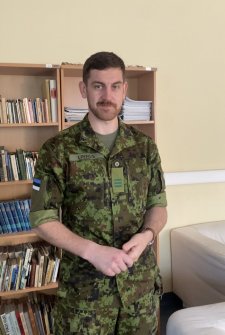
Sergeant Artur Linnus of the Estonian Defence Forces noted, "Coming from a neighbouring country, I was eager to learn more about the Latvian approach. I believe we have some ideas that could also be implemented in Estonia!"
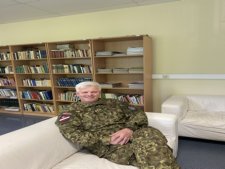
Private Veiko Spolītis of Latvian National Guard underlined the importance of these exercises in preparing for contingency, emphasizing the importance of cooperation, communication, and unity in the face of cultural differences.
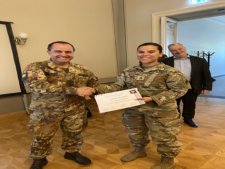
Staff Sergeant Gloria Johansson from the US Army shared, "Over the past week, I've been learning to work closely with my NATO counterparts. This experience has been crucial in enhancing our interoperability, rapport, and overall working relationships. We're collectively preparing for a range of potential scenarios, which ultimately strengthens our NATO partnerships as a whole."
Finally, senior instructor and part of the course's development team, retired Lieutenant Colonel Jan Sabinash from the Polish Armed Forces, reflects on the immersive, challenging, and professionally rewarding experience provided to the students. The course was tailored to Latvia's specific setting, offering training in complex hybrid warfare environments. While recognizing that there is always room for enhancement in the future, the course surpassed expectations thanks to a remarkable team, a cooperative host, and truly committed students.

